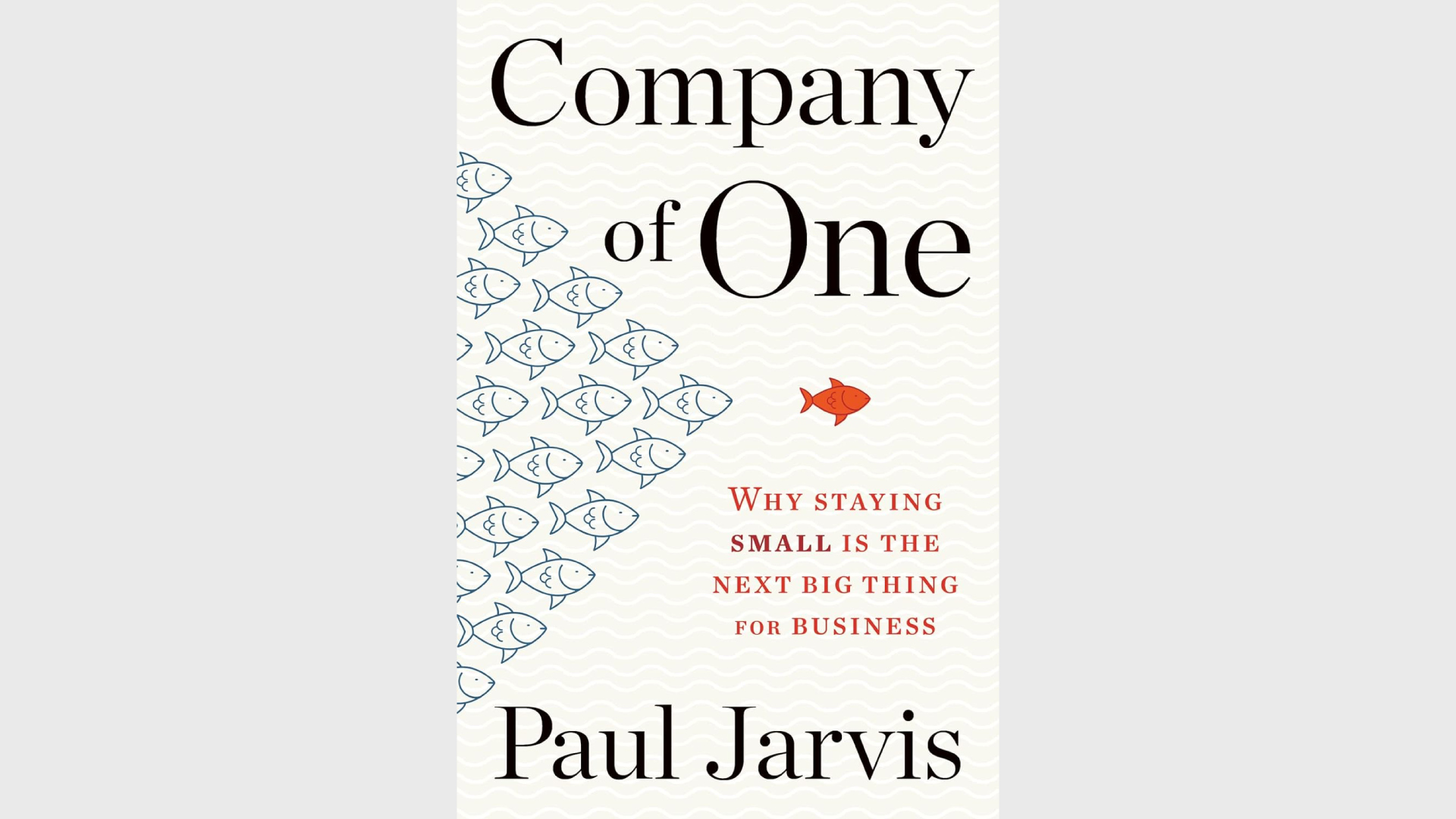Summary: Company Of One by Paul Jarvis

In the bustling landscape of modern business, where the mantra often seems to be "bigger, faster, stronger," Paul Jarvis's "Company of One" offers a refreshing perspective. Jarvis challenges the conventional wisdom that continued growth is the only path to success, advocating for a business model built on sustainability, efficiency, and personal fulfillment instead. Let's delve deeper into the key insights from this insightful book, enriched with additional context and reflection.
Sustainability Over Growth
Jarvis's emphasis on sustainability goes beyond mere environmental concerns; it encompasses the essence of business viability. By prioritizing sustainability, entrepreneurs can cultivate businesses that are not only environmentally responsible but also financially resilient. This involves building a solid foundation, diversifying revenue streams, and fostering a culture of adaptability. Jarvis notes, "Sustainability means finding ways to survive, adapt, and thrive in a constantly changing environment."
Efficiency and Effectiveness
In today's hyper-connected world, where time is a precious commodity, the importance of efficiency cannot be overstated. Jarvis advocates for a lean approach to business operations, where every resource is optimized for maximum impact. This requires a keen focus on eliminating waste, streamlining processes, and leveraging technology to automate repetitive tasks. As Jarvis observes, "Efficiency isn't about doing more in less time; it's about doing the right things most effectively."
Quality Over Quantity
In a culture that often equates success with scale, Jarvis champions the value of quality over quantity. By prioritizing quality in products, services, and customer experiences, businesses can differentiate themselves in crowded markets and cultivate loyal followings. This entails a commitment to craftsmanship, attention to detail, and a relentless pursuit of excellence. As Jarvis eloquently says, "Quality isn't an act; it's a habit."
Personal Fulfillment and Lifestyle Design
Perhaps one of the most profound insights from "Company of One" is that business success should not come at the expense of personal fulfillment. Jarvis encourages entrepreneurs to design businesses that align with their values, passions, and desired lifestyles. This might mean eschewing traditional success metrics and favoring more holistic measures, such as work-life balance, creative fulfillment, and meaningful connections. As Jarvis wisely advises, "Don't build a business that makes you miserable; build a business that makes you happy."
Resilience and Adaptability
In an era of rapid change and uncertainty, resilience is vital for businesses seeking long-term success. Jarvis stresses the importance of agility, flexibility, and a willingness to embrace change. By cultivating a mindset of adaptability, companies can navigate challenges, seize opportunities, and thrive in volatile environments. Jarvis observes, "The ability to adapt is more important than the ability to scale."
In summary, "Company of One" offers a compelling blueprint for building businesses that are financially successful, personally fulfilling, and environmentally responsible. By embracing principles of sustainability, efficiency, and personal alignment, entrepreneurs can create enterprises that endure the test of time and positively impact the world. As Paul Jarvis reminds us, "Success is not about how big you can grow your business, but how well you can align it with your life."

About the Author: Paul Jarvis
Paul Jarvis is a designer, writer, and entrepreneur who has spent over two decades working with individuals and companies to help them grow their businesses. With a web design and development background, Jarvis has built and sold several online businesses, including a digital product that a Fortune 500 company acquired. He also authorizes several books, including "Company of One," which has garnered widespread acclaim for its insightful perspective on sustainable entrepreneurship. Through his writing, speaking engagements, and online courses, Jarvis inspires entrepreneurs worldwide to rethink their approach to business and prioritize sustainability, efficiency, and personal fulfillment.

Building a Sustainable “Company of One”: A 10-Point Checklist
In the ever-evolving entrepreneurship landscape, the “Company of One” concept has gained significant traction. Coined by author and entrepreneur Paul Jarvis, it challenges the traditional notion that bigger is always better in business. Instead, it advocates for building sustainable and fulfilling enterprises, prioritizing purpose, profitability, and personal well-being over relentless growth.
So, how can you evaluate if you’ve successfully created a “Company of One”? Let’s delve into a 10-point checklist to guide you through the process:
1. Purpose and Values: Clearly define your company’s purpose. Ensure they resonate with your personal beliefs and aspirations and serve as the foundation for all your business decisions.
2. Solo Operations: Evaluate whether you’re primarily running the show alone. A “Company of One” minimizes reliance on additional employees or contractors, allowing for greater autonomy and flexibility.
3. Profitability Focus: Shift your focus from revenue growth to sustainable profitability. Prioritize efficiency and intelligent resource allocation to ensure your business thrives long-term.
4. Efficiency and Automation: Implement efficient systems and automation tools to streamline processes. This reduces the need for additional workforce, allowing you to maximize productivity with minimal resources.
5. Scalability Assessment: Reflect on whether growth and expansion align with your business goals. Sometimes, staying small can be more advantageous, providing greater control and flexibility.
6. Client and Customer Relationships: Cultivate solid and meaningful relationships with your clients or customers. Quality interactions and personalized attention often outweigh the need for a large customer base.
7. Resourceful Problem Solving: Develop a knack for resourceful problem-solving. Instead of throwing manpower at challenges, seek creative solutions that effectively leverage existing resources.
8. Work-Life Balance: Strive for a healthy work-life balance. Your business should support your well-being and lifestyle choices rather than consuming all your time and energy.
9. Financial Independence: Structure your business to achieve financial independence and security. Avoid overreliance on external funding or investors, maintaining control over your company’s direction and destiny.
10. Continuous Learning and Improvement: Embrace a continuous learning and improvement culture. Stay adaptable and open to change, evolving with the market and industry landscape.
By assessing your business against these criteria, you can gauge whether you’ve successfully cultivated a “Company of One” – a sustainable and fulfilling enterprise prioritizing purpose, profitability, and personal well-being. Remember, it’s not about the size of your business but rather the impact and fulfillment it brings to your life and the lives of others.
